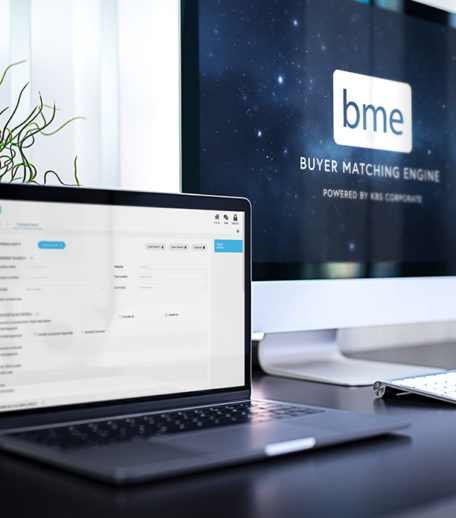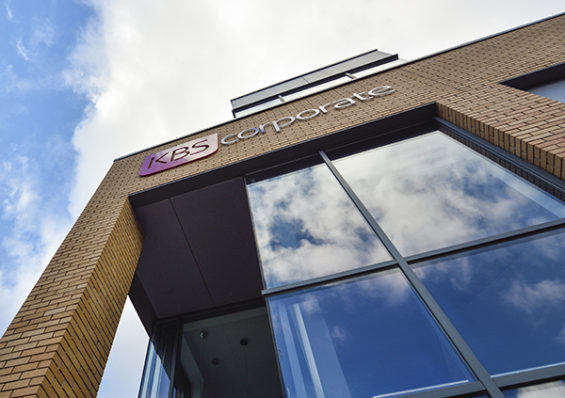Steps for selling a limited company
Business owners have a variety of reasons why they feel the time is right to sell a limited company, often individual to their own personal circumstances.
Whatever kind of business sale you are considering for your limited company, there are a number of practical considerations that need to be taken into account. Read on to find out more about the steps involved in selling a limited company.
How to sell a limited
company in 10 steps
A full sale is not the only option available when it comes to selling a limited company. Some business owners decide they no longer wish to shoulder the responsibilities of controlling their company and enter into a deal where they retain a shareholding and a less senior executive role, perhaps by way of a ‘handover’ for a certain time period.
Alternatively, they might have reached the point in life when retirement has become a very attractive prospect, or they may be eager to begin a new business project in another sector. Additionally, the market outlook could be favourable with companies of a specific type being in high demand.
Different kinds of limited company sale are feasible, with potential acquirers including existing business partners and family members, while trade buyers may be seeking to broaden their market reach or add a greater range of products or services to their current portfolio.
Whichever type of exit strategy you are planning, there are several factors that need to be addressed for the transaction to be completed successfully – we discuss the implications of them below.
1. Valuation
The value of your company depends on how much a buyer is willing to pay for it. You may have a notional price tag in mind, but there are no guarantees that can be realised when a sale process begins.
But we can identify and nurture appropriate, motivated acquirers to generate a competitive bidding environment, using comparisons with equivalent company sales in your sector and the specific value drivers of your business.
2. Selling your shares
When you come to sell a limited company, the transaction will necessitate the transfer of shares to the buyer for an agreed value. If the acquirer is a third party unconnected to the business, all shareholders will have to agree to sell their shares to complete a full sale.
Also transferred to the new owners will be the company’s assets and liabilities. Assets can either be valued separately to the shares or bundled together, but any debts attached to the business will be factored into negotiations by the acquirer.
3. Partial business sales
You may decide you want to sell your limited company only partially, thus remaining as a shareholder – but there are aspects of this which you need to bear in mind.
Potential issues surround the other people involved in, or affected by, the sale. For example, how will you demarcate responsibilities with the new part-owner? This may require a shareholders’ agreement to avert complications, while any staff being directly impacted will need to be informed before the change of ownership happens to prevent any breach of employees’ rights.
4. Shareholder pre-emption rights
Depending on what is contained in your company’s Articles of Association or Memorandum of Association, there could be restrictions on the transfer of shares whereby the shares you want to sell or transfer must first be offered to a specific body of individuals, usually the other remaining shareholders.
In other words, if such a restriction has been legally stipulated, you must offer any fellow shareholders a first right of refusal before you can sell your shares to an outsider.
5. Selling your assets
By selling assets, we are not merely referring to buildings, machinery, equipment, furniture and other fixtures and fittings. It also applies to intellectual property, accounts receivable, investments and even goodwill.
Thought should be given to what each individual asset is worth in order to determine the total value of the business when selling a limited company.
6. Transfer of liabilities
This refers to financial commitments such as accounts payable, salaries, taxes and loans, which become the responsibility of the new owner when you sell your limited company.
These liabilities will be scrutinised by the acquirer as part of their due diligence process before the transaction is completed, so it is advisable to settle as many debts as possible and present the clearest and most accurate picture of the company’s financial situation.
7. Potential buyer background checks
We can help you with all the points listed here, but joining forces with us will save you a great deal of time and effort with this one in particular.
Identifying a buyer who is readily able to demonstrate proof of funding for their acquisition is something we take extremely seriously, and we will conduct all of the necessary credit checks and investigation and commission the required legal documents to that effect.
8. Safeguarding the company
This is another area where you can be assured KBS Corporate have got your back. In the undesirable event of your sale breaking down, we will have ensured you are protected by a Non-Disclosure Agreement (NDA) which blocks any confidential information being disclosed.
If any of that data was used by the other party for the benefit of their own business or for any other commercial gain, in contravention of the NDA, you would be in a position to pursue legal action against them.
9. Capital Gains Tax
A capital gain is the profit you make when selling a limited company in comparison to the amount you paid for it. The tax you pay will be calculated on the amount of profit, not the overall funds received from the sale.
However, you may qualify for Business Asset Disposable Relief, which means you would pay a lower Capital Gains Tax rate of 10% on the first £1million rather than 20%. You can read our full guide to tax on selling a business.
10. Inform Companies House
Once the transfer of shares to the new owner has been completed, Companies House must be informed of a change to where the company’s records are kept and the identities of any new directors or company secretaries within 14 days.
The time limit is 15 days to inform Companies House about changes to your constitution or Articles of Association, one month if you issue more shares in your company, and 21 days for all other changes.
You will also need to inform HMRC by completing a company tax return to cover the accounting period up to the sale date.

How long will it take to sell my limited company?
Due to the numerous processes involved, selling a limited company is not something that happens overnight or even within a few weeks, except in the rarest cases.
But if you are well prepared and have got all the details of your business in good order, that will certainly help to compress the timescale – and, of course, having KBS Corporate shouldering much of the workload of your limited company sale will also help considerably.

Can I partially sell my limited company?
Yes, you can partially sell a limited company, especially if you are seeking an injection of funds by selling some shares to reinvest the proceeds into the business.
This action may result in you having less control of the company though, so it is prudent to draw up a formal shareholders’ agreement to clarify responsibilities and avert any potential disputes further down the line.

Who can I sell my limited company to?
You naturally want to find the most suitable buyer possible for your limited company and with our extensive global network of contacts, we are ideally positioned to source the right company or investor. If you want to transfer or sell your limited company shares to someone you know and trust, we can help with that too.
As mentioned above though, if you have fellow shareholders, you may be contractually bound to offer them first refusal before pressing ahead with a sale to an outside party.
Can I remain a shareholder after selling a limited company?
There are no rules in place to say you cannot, and it will be largely dependent on the formal agreement you make with the new owner.
Indeed, the acquirer may be keen for you to stay on in a handover capacity for a certain length of time as they learn more about the business, whilst also giving customers and suppliers a sense of continuity and security.

Do I need permission to sell my limited company?
This depends on whether you are the sole shareholder or if ownership of the limited company is divided. In the latter case, the other shareholders will normally need to agree before you can sell your limited company.
If, as outlined above, pre-emption rights are in place, these can be waived by the other shareholders – but they would also have the power to veto a sale to a buyer they do not want to be in business with.

Can I sell my limited company with debt?
Yes, and there are several options available. You could pay off some or all of the debt before you sell your limited company, or do so with the proceeds from the sale.
Alternatively, you could pass on the debts to the buyer, but this would inevitably impact the value they would be prepared to pay for your company.

Can I sell a dormant limited company?
A dormant limited company, i.e. one that is not currently trading but is still legally registered, would be difficult to sell due to its lack of recent activity. Annual accounts and a confirmation statement still need to be submitted to Companies House.
While a dormant company may appeal to a buyer if it had an attractive name or unique service offering, it would most likely need to be reactivated to become a viable acquisition opportunity.

What are the tax implications of selling a limited company?
We have outlined the Capital Gains Tax implications associated with selling a limited company in its own section above, but Corporation Tax also needs to be factored in for profitable businesses.
Whereas CGT is paid on the profit you have made from selling your shares in your limited company, Corporation Tax relates to the profit made from selling the assets of the business.

How to sell a limited company with KBS Corporate
If you need more information about how to sell a limited company, or you have decided the time is right to test the water, our team of experts is available to assist you.
We have been helping shareholders to sell their limited companies for over 25 years and have become the UK’s leading business sales adviser. Contact us for a confidential, no-obligation discussion.

Speak to our expert team on 0161 258 0118 to arrange a consultation
Find out more